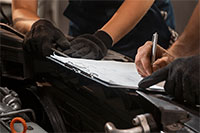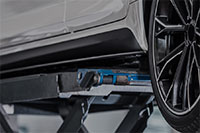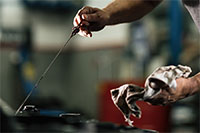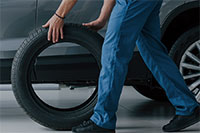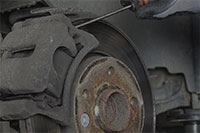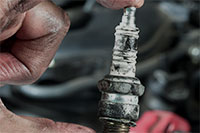Understanding Car Tune-Ups
A Comprehensive Guide
A car, similar to the human body, requires regular check-ups to maintain optimal health. This is where car tune-ups come into play, acting as a preventative healthcare routine for your vehicle. Tune-ups significantly enhance a vehicle's efficiency, keep potential engine issues at bay, and prevent costly repairs in the future. This guide provides an in-depth look into the various aspects of a car tune-up and why they're essential for your vehicle's health.
Ready? Let's go.
- Spark Plug Replacement
- Air Filter Replacement
- Fuel Filter Replacement
- Oil and Oil Filter Change
- Timing Belt Replacement
- Ignition System Inspection and Maintenance
- Battery Inspection and Replacement
- PCV Valve Replacement
- Brake System Inspection and Maintenance
- Tire Rotation and Balancing
Spark Plug Replacement
Spark plugs are the tiny yet powerful heroes in your car's engine. They ignite the fuel and air mixture in the engine's cylinders, effectively kicking off the combustion process that powers your vehicle. However, like all heroes, they can tire over time, their efficiency becoming hampered by grime and wear. This can lead to various complications, such as engine misfires, suboptimal fuel efficiency, and even trouble starting the vehicle. Regularly replacing spark plugs ensures the engine stays at its best, offering you a smooth and economical ride.
Air Filter Replacement
Think of the air filter as your car's respiratory system. It filters the air drawn into the engine, ensuring no damaging particles interfere with the combustion process. Much like our lungs can struggle with pollution, your air filter can get choked with debris and grime over time. This obstruction could lead to poor engine performance and decreased fuel efficiency. Regular replacement of air filters can feel like a breath of fresh air for your engine, allowing it to function more effectively while ensuring better gas mileage.
Fuel Filter Replacement
The fuel filter plays a significant role in your vehicle's digestive system. Acting as a guard, it protects the engine from impurities in the fuel. Over time, however, the filter can become clogged, causing the engine to starve and perform poorly. Sometimes, a clogged filter can even prevent the engine from starting altogether. Regular replacement of the fuel filter ensures a clean fuel supply, keeping your engine purring with satisfaction.
Oil and Oil Filter Change
Oil serves as the lifeblood of your car's engine. It provides the necessary lubrication for the engine's moving parts, reducing friction and wear. As time progresses, this oil can become contaminated, diminishing its lubricating properties. The oil filter, designed to capture these contaminants, can also become clogged, reducing its effectiveness. Regular oil and filter changes revitalize your engine, ensuring its moving parts glide smoothly with minimal friction.
Timing Belt Replacement
The timing belt is like the conductor of an engine's orchestra, ensuring the crankshaft and camshaft play in perfect harmony. A failure of this conductor can lead to discord, possibly causing severe engine damage. Regular replacement of the timing belt keeps this orchestra in sync, preventing costly repairs and extending your vehicle's life span.
Ignition System Inspection and Maintenance
The ignition system is the starter pistol of your car's race. It triggers the fuel's ignition in the engine, propelling the vehicle into motion. However, like any complex system, parts of the ignition system can wear out, reducing fuel efficiency and overall performance. Regular inspections can help identify and address these issues before they escalate, ensuring your car is always ready to race.
Battery Inspection and Replacement
The battery is your car's energy reservoir. It's responsible for starting the engine and powering all the electrical components. However, batteries can lose their charge over time or even become corroded, leading to difficulties in starting the engine. Regular battery inspections and replacements ensure your car has a reliable source of energy, keeping everything from your headlights to your stereo system running smoothly.
PCV Valve Replacement
The PCV (Positive Crankcase Ventilation) valve is the environmental advocate within your vehicle. It ensures harmful gases from the crankcase are recycled back into the intake manifold, reducing emissions. Regular inspection and replacement of the PCV valve not only helps the environment but also maintains the engine's health, ensuring peak performance.
Brake System Inspection and Maintenance
Brakes are your vehicle's safety anchors. The complex system that includes brake pads, rotors, callipers, and brake lines all works in unison to halt your vehicle on command. Over time, these components can wear down, compromise your vehicle's safety, and necessitate replacement. Regular brake inspections ensure your vehicle is always ready to stop on a dime, providing you with peace of mind each time you hit the road.
Tire Rotation and Balancing
Tire rotation and balancing can be likened to a chiropractic adjustment for your car. It ensures the vehicle's weight is evenly distributed, leading to balanced wear and tear on the tires. Regular tire rotation and balancing can prevent uneven wear, extend the life of your tires, and provide a smoother, safer ride.
By understanding the value each of these aspects brings to your vehicle's performance, you can take proactive measures to ensure your car's longevity and optimize your driving experience. Regular vehicle maintenance is not just about avoiding problems but also about promoting the best possible performance from your car.
If you reside in Vernon or nearby communities and are in need of car tune-up services, we invite you to schedule an appointment with us. Be safe.



